

Dr. Demir works at Memorial Ankara Clinic. He specializes in the treatment of neuroblastomas and other childhood oncologies. He performs a bone marrow transplant. Medical experience is more than 20 years.
Member of international societies:
2010-2015: Member of the Scientific Committee on Hemoglobinopathies of the Ministry of Health.
2008-2012: Member of the Stem Cell Science Council of the Ministry of Health.
2009-2013: Commission for Pediatric Hematology and Oncology. Member of the Council of Medical Specialties.
2013-2018: TÜBA Stem Cell Scientific Committee
He is a member:
Author of 113 scientific publications.
Prof. Baitan is an experienced bone marrow transplantologist.
He specializes in the diagnosis and treatment of oncological diseases in children, bleeding, anemia, vascular diseases and much more.
Professor Baytan has published over 30 articles in international and Turkish peer-reviewed journals.
He is also the author and co-author of 3 books.
Professor Gülyüz Öztürk graduated from the Medical Faculty of Ankara University. Awarded the title of professor at Hacettepe University.











Check the cost of treatment and get 20 000 € from international foundation
Get financial help up to 20 000 € for your child treatment
Medical consultant
Turkish oncologist will provide an individual chemotherapy program.
Israeli oncologist will provide an individual chemotherapy program.
Spanish oncologist will provide an individual chemotherapy program.
German oncologist will prepare an individual chemotherapy program.
Polish oncologist will prepare an individual chemotherapy program.
Italian oncologist will prepare an individual chemotherapy program.
Turkish radiologist will prepare a personalized radiation therapy program
Israeli radiologist will draw up an individual radiation therapy program.
German radiologist will draw up an individual radiation therapy program.
Spanish radiologist will draw up an individual radiation therapy program.
Polish radiologist will prepare an individual radiation therapy program.
Italian radiologist will draw up an individual radiation therapy program.
Turkish plastic surgeon will make an individual operation program.
German plastic surgeon will make an individual operation program.
Israeli plastic surgeon will make an individual operation program.
Italian plastic surgeon will make an individual operation program.
Polish plastic surgeon will make an individual operation program.
Spanish plastic surgeon will make an individual operation program.
Turkish orthopedic surgeon will make an individual operation program.
Israeli orthopedic surgeon will make an individual operation program.
German orthopedic surgeon will make an individual operation program.
Italian orthopedic surgeon will make an individual operation program.
Lithuanian orthopedic surgeon will make an individual operation program.
Polish orthopedic surgeon will make an individual operation program.
Ukrainian orthopedic surgeon will make an individual operation program.
Spanish orthopedic surgeon will make an individual operation program.
Turkish neurosurgeon will study the medical situation and give recommendations for treatment.
Israeli neurosurgeon will study the medical situation and give recommendations for treatment.
German neurosurgeon will study the medical situation and give recommendations for treatment.
Italian neurosurgeon will study the medical situation and give recommendations for treatment.
Lithuanian neurosurgeon will study the medical situation and give recommendations for treatment.
Spanish neurosurgeon will study the medical situation and give recommendations for treatment.
Ukrainian neurosurgeon will study the medical situation and give recommendations for treatment.
Turksih doctor will answer your questions
Israeli doctor will answer your questions
German doctor will answer your questions
Italian doctor will answer your questions
Polish doctor will answer your questions
Ukrainian doctor will answer your questions
Spanish doctor will answer your questions
Israeli orthopedic surgeon prepare an individual surgical plan and recomendations
Turkish orthopedic surgeon prepare an individual surgical plan and recomendations
German orthopedic surgeon prepare an individual surgical plan and recomendations
Italian orthopedic surgeon prepare an individual surgical plan and recomendations
Lithuanian orthopedic surgeon prepare an individual surgical plan and recomendations
Polish orthopedic surgeon prepare an individual surgical plan and recomendations
Spanish orthopedic surgeon prepare an individual surgical plan and recomendations
Lithuanian doctor will answer your questions
After examining your situation, doctor will make an individual price offer.
Doctor-consultant will answer all your questions about the cost of treatment, the choice of a doctor and fully organize treatment abroad.

we will contact you within 15 minutes
Bone marrow transplantation (BMT) is a procedure to inject and engraft healthy bone marrow (own or donor) to replace an abnormal hematopoietic organ. A more accurate modern term for this procedure is “hematopoietic stem cell transplant,” which is a transplant of hematopoietic stem cells that reside in the bone marrow.
The first successful bone marrow transplant was performed in New York City in 1957 on a patient with acute leukemia. Dr. Thomas, who performed the procedure, received a Nobel Prize for developing this treatment.
BMT is the primary technique for treating blood cancers.
The price of autologous transplantation is on average $ 36,000, and the cost of allogeneic bone marrow transplantation in Turkey is from $ 80,000. Prices for this type of treatment in Germany and Israel are much higher – up to 50%.
The bone marrow transplant cost in Turkey may slightly differ in one direction or another depending on the price level in each individual clinic. The price difference may vary for individual components of the procedure. For example, the price of donor material, and donor travel for stem cell donation.
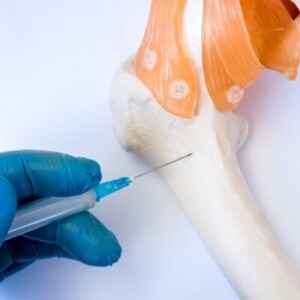 Bone marrow transplant in Turkey significantly increases the effectiveness of treatment for patients. It gives a chance for complete recovery or long remissions in severe hematologic and oncologic diseases. That is why this procedure is put on stream in Turkish clinics.
Bone marrow transplant in Turkey significantly increases the effectiveness of treatment for patients. It gives a chance for complete recovery or long remissions in severe hematologic and oncologic diseases. That is why this procedure is put on stream in Turkish clinics.
Where do they get bone marrow for transplantation in Turkey?
Healthy hematopoietic stem cells are obtained in Turkish medical centers in three ways:
BMT in Turkey is a frequently used surgery in clinical practice. In several severe diseases, it is performed by a whole team of highly specialized doctors in a specialized medical center. They are connected with international registries of bone marrow donors.
New transplantation technologies are constantly appearing in Turkey. For example, T-cell depletion, and new drugs that improve the results of transplants.
The T-cell depletion method is the removal of immune T-cells from the donor bone marrow before transplantation in Turkey. This significantly reduces the risk of graft versus host reaction, which is important when engrafting bone marrow from partially compatible donors.
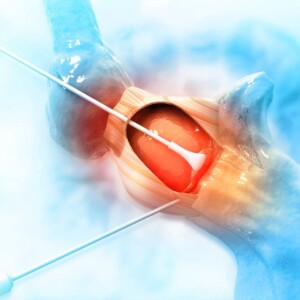 As in European and Israeli clinics, Turkish specialized centers perform all existing types of bone marrow transplants:
As in European and Israeli clinics, Turkish specialized centers perform all existing types of bone marrow transplants:
Depending on who becomes the donor, allogeneic bone marrow cell transplants are of three types:
The most complicated procedure is considered to be allogeneic haploidentical transplantation, which is performed only in large clinics with innovative equipment. Such conditions are necessary to prepare the donor material, which significantly improves the patient’s prognosis of engraftment of the transplanted bone marrow.
The procedure of injecting normally functioning stem cells, from which all the formative elements of blood (red blood cells, white blood cells and platelets) are formed, is performed in many diseases. This can be oncology and other diseases of the blood system.
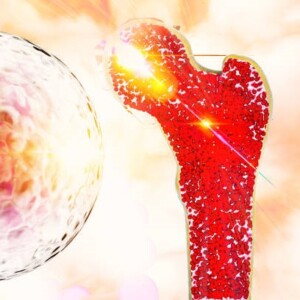 Indications for allogeneic bone marrow transplant in Turkey:
Indications for allogeneic bone marrow transplant in Turkey:
Autologous bone marrow transplant in Turkey is usually reserved for patients with Hodgkin’s and non-Hodgkin’s lymphoma after high-dose chemotherapy. The aim is to maintain and restore the bone marrow after the use of aggressive drugs. Such measures increase the effectiveness of comprehensive therapy aimed at complete recovery or correction of relapse.
Stem cells from bone marrow are also transplanted to patients receiving high-dose chemotherapy or radiation therapy. Such treatment is used in certain types of oncology (breast cancer, neuroblastoma). This method is suitable for the treatment of autoimmune diseases, including multiple sclerosis, systemic lupus erythematosus, and some other pathologies.
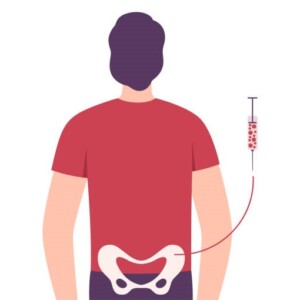 Bone marrow transplants with the best results in the world are performed in clinics in the USA, some European Union countries (primarily Germany), Israel, and Turkey. From a financial point of view, it is much cheaper to perform BMT in Turkish clinics than in American or European ones.
Bone marrow transplants with the best results in the world are performed in clinics in the USA, some European Union countries (primarily Germany), Israel, and Turkey. From a financial point of view, it is much cheaper to perform BMT in Turkish clinics than in American or European ones.
In the former CIS countries, BMT is available to only a few patients who need it. Often, transplantation is only possible in some clinics in large cities. Even transplantation of one’s own bone marrow is not always performed at the level of modern international standards. This is due to the lack of modern equipment, technologies and experienced doctors in hospitals. Also, a special mode of nursing for patients during the first 3 weeks after bone marrow transplant is not provided at the proper level. The medical staff cannot conduct high-level rehabilitation within 100 days after the procedure, which is extremely important for the result, the effectiveness of the whole treatment, and a favorable prognosis of the disease.
Donor cell transplantation is also difficult in the presence of a partially compatible related donor (due to the lack of necessary technologies for cell preparation in such cases). The lack of a suitable relative for bone marrow donation, or an insufficient national registry of potential unrelated donors, becomes a problem. A key disadvantage is the lack of integration of hematology departments with international bone marrow donor registries.
In such a case, searching for a donor in international medical databases and its activation (obtaining bone marrow and its transportation, or appointment the donor to the clinic) becomes an expensive medical service. Therefore, in case of malignant blood diseases, it is advisable to immediately consider the option of BMT in a specialized medical center abroad.
Due to the rapid state-of-the-art of oncohematology and transplantation medicine, in many BMT departments in Turkish clinics, this procedure is performed at a high international level. The result of successful engraftment of the donor material as in European clinics (from 90%). At the same time, the cost of bone marrow transplant in Turkey is significantly lower than in German or Spanish clinics. Medical service is patient-centric for patients from abroad.
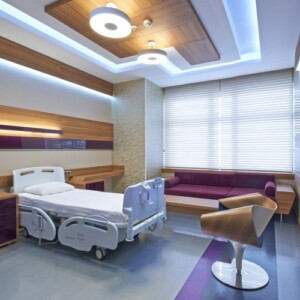 In the Bone Marrow Transplant Centers of the Medical Park Clinic Network in 2021:
In the Bone Marrow Transplant Centers of the Medical Park Clinic Network in 2021:
In 2021, Seckin Erdal, President of the Turkish Nurse Group at EBMT, received the Outstanding Service Award for nurses working in Bone Marrow Transplant Centers in Turkey at the Annual Congress of the European Society of Bone Marrow Transplantation (EBMT). She works at the Acibadem Clinic.
This shows the high international level of qualification of all specialists – both doctors and nurses working in Turkish clinics.
In the five specialized centers of Medical Park Clinic in 2021 in adult patients were performed:
Also haploidentical bone marrow transplant in Turkey is put on stream in specialized centers of Acibadem Clinic.
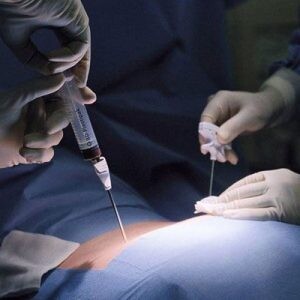 Autologous bone marrow transplantation involves several stages:
Autologous bone marrow transplantation involves several stages:
The procedure of injecting donor bone marrow is usually done surgically. The bone marrow can be injected into the recipient’s body through a vein (venous infusion) or using a special tube inserted directly into the bone marrow (bone marrow infusion).
Donor bone marrow transplantation with a good outcome is a complex process. It involves many medical components and stages with the participation of a whole team of specialists:
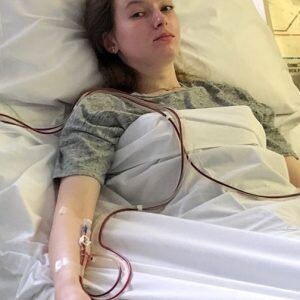 Donor selection.
Donor selection.
This is one of the most important stages, which largely determines the outcome of the transplant. It can be an evaluation by doctors of a relative as a donor. It is also possible to select and activate a donor from the national Turkish or international registry. In Turkey, it is possible to obtain donor material from the International Cord Blood and Bone Marrow Bank.
Patient and donor compatibility testing.
Within 4-5 days, the patient and donor undergo a thorough preoperative examination to determine the degree of compatibility (full or partial), primarily compatibility by HLA tissue antigen.
Stem cell collection from the donor.
Cells are obtained from the donor’s peripheral blood using venous catheters in two arms. Blood is drawn through one and passed through a special machine to collect stem cells. Through the other, the blood is returned to the donor. It usually takes several such sessions over 2 days. The time the donor needs to stay in Turkey to receive the material for transplantation and recovery usually does not exceed 10 days. The cells obtained are processed and stored frozen until administration to the patient.
Preparation of the patient for donor cell transplantation (conditioning regimen).
The goal of the conditioning regimen is to destroy any remaining malignant cells in the recipient’s bone marrow and suppress the immune system for successful engraftment of the donor stem cells. This is accomplished by doctors administering chemotherapy according to a specific international protocol. The duration of chemotherapy for fully HLA-compatible allogeneic transplants is 6 days. For compatible cells from unrelated donors, it is 7 days and for haploidentical cells, it is 9 days.
Patient administration of donor stem cells.
One day after chemotherapy, donor stem cells are administered to the patient by slow infusion over 2 hours under the doctor’s supervision.
Prevention and treatment of complications in the patient during the period of bone marrow suppression.
At the end of conditioning and before the transplanted stem cells begin to function, the patient develops a state of complete suppression of their own bone marrow. It is manifested by almost complete absence or extremely low content of red blood cells, leukocytes and platelets in the patient’s peripheral blood. The process lasts on average 3 weeks after BMT.
In the postoperative period, life-threatening complications can develop severe infections, up to sepsis and severe bleeding. Therefore, during this period, the patient is kept in a special sterile box with HEPA filters and lives in sterile conditions.
Doctors conduct careful round-the-clock monitoring of the patient’s condition and blood counts. The recipient receives all necessary therapy to prevent and treat complications, and support good health: infusion of blood components, antibacterial therapy, symptomatic agents. Additionally, the patient is provided intravenous nutrition and care.
To prevent rejection of transplanted cells, doctors prescribe immunosuppressants. These are special drugs to suppress the body’s immune response to foreign cells.
Engraftment of healthy donor stem cells and restoration of hematopoiesis.
Stem cells begin to engraft about 10 days after administration. During this period, blood counts gradually increase. Then, the patient can be discharged from the sterile box for further observation in a regular ward, where he can already live with a relative. One month after the transplant, doctors perform a bone marrow analysis, which shows that the donor cells are “in place” and functioning normally.
Then the patient can leave the medical facility and live in a hotel at the clinic, continuing to be monitored by doctors. After another month, the patient can return home if the blood test results are satisfactory and the general condition is stable.
Usually, from the day of hospitalization in a Turkish clinic to the day of return to your country, it takes 2-3 months. This period may increase if there are severe infectious complications or blood counts are slowly recovering.
After returning home, the patient stays in touch with his/her attending physician and can return to the clinic for treatment if there are any complications. Full rehabilitation of the patient after a bone marrow transplant in Turkey takes from 3 to 12 months. After 100 days from the moment of the procedure, if there are no complications, it is considered that the transplant was successful.
 Performing BMT in Turkish medical centers has a number of important advantages:
Performing BMT in Turkish medical centers has a number of important advantages:
All the above factors significantly improve the prognosis in bone marrow transplantation. Therefore, Turkey is one of the key destinations where it is advisable for patients to go for diagnosis, treatment and rehabilitation of hematologic diseases and oncopathologies.
Turkey has many medical centers with the necessary international accreditations. Patients come there from England, the USA and Kazakhstan.
According to research conducted by the Turkish Ministry of Healthcare, in 2018, Medical Park Clinic in Antalya ranked 1st among the top five medical centers in the country with the highest rates of performed bone marrow transplants for children.
The specialized centers of Ajibadem clinics perform the high-tech procedure of T-cell depletion. This is the removal of cells from the donor material before transplantation, which can cause a strong immune response and bone marrow rejection. The procedure significantly increases the effectiveness of BMT and increases the chances of a favorable outcome – engraftment of stem cells from incompatible donors.
 Expertise is required to organize such a complex, lengthy and expensive treatment abroad. Sufficient experience of a particular medical institution and the availability of all necessary professionals in it play a role in the choice of a clinic.
Expertise is required to organize such a complex, lengthy and expensive treatment abroad. Sufficient experience of a particular medical institution and the availability of all necessary professionals in it play a role in the choice of a clinic.
In the financial matter, the cooperation of a medical tourism organization with charitable foundations is an advantage. In some cases it allows to compensate a part of the cost of medical services for the child.
Experts Medical coordinating doctors know all the possibilities of bone marrow transplant centers in several clinics in Turkey. They keep in touch with leading doctors in the field of hematology and oncology. When choosing a medical center, they always take into account the feedback from patients who have undergone BMT.
Leave a request on the website for a free consultation. Experts Medical specialists will be able to find the best package offer for you on the bone marrow transplant cost in Turkey. You will be fully organized the whole process of treatment: starting from the day of contacting the company and up to the complete rehabilitation of the patient after BMT in a Turkish clinic.